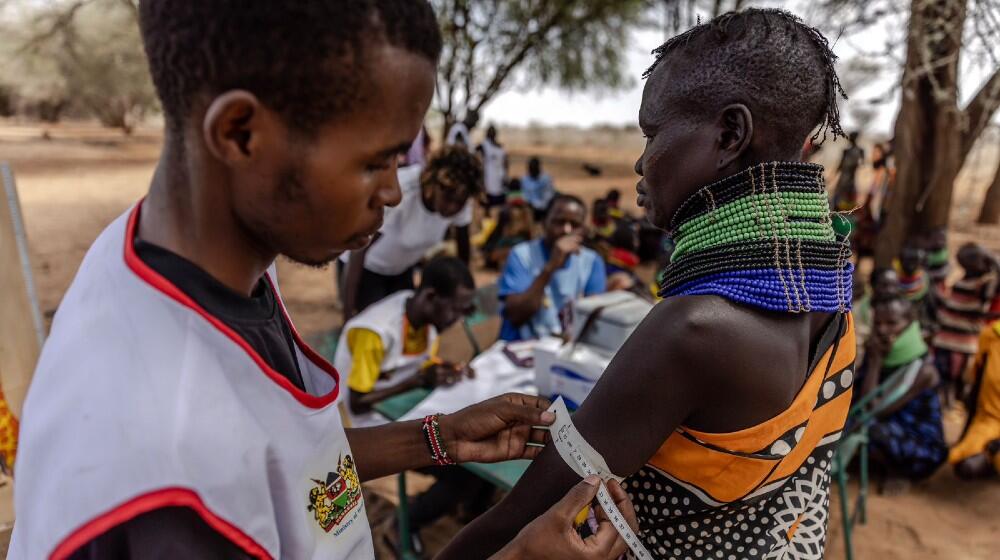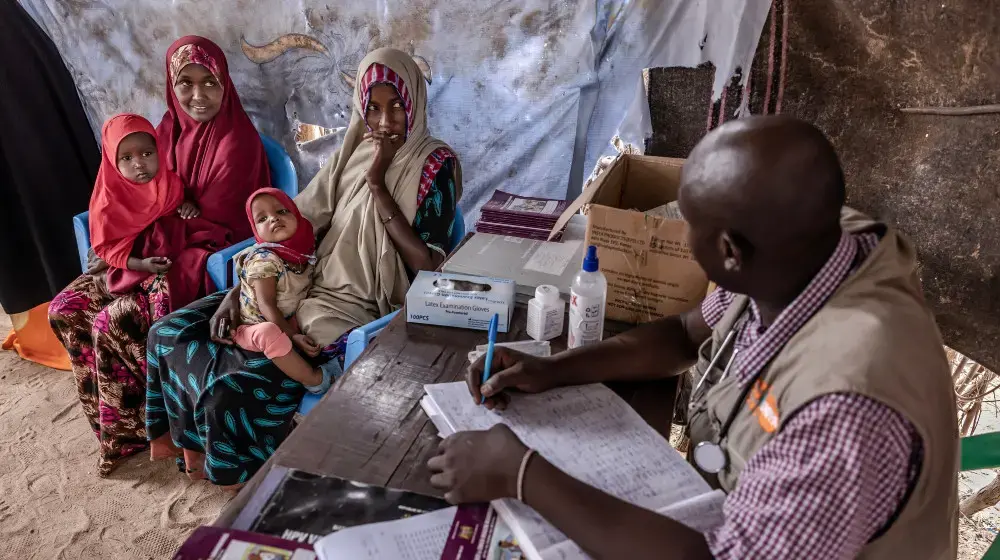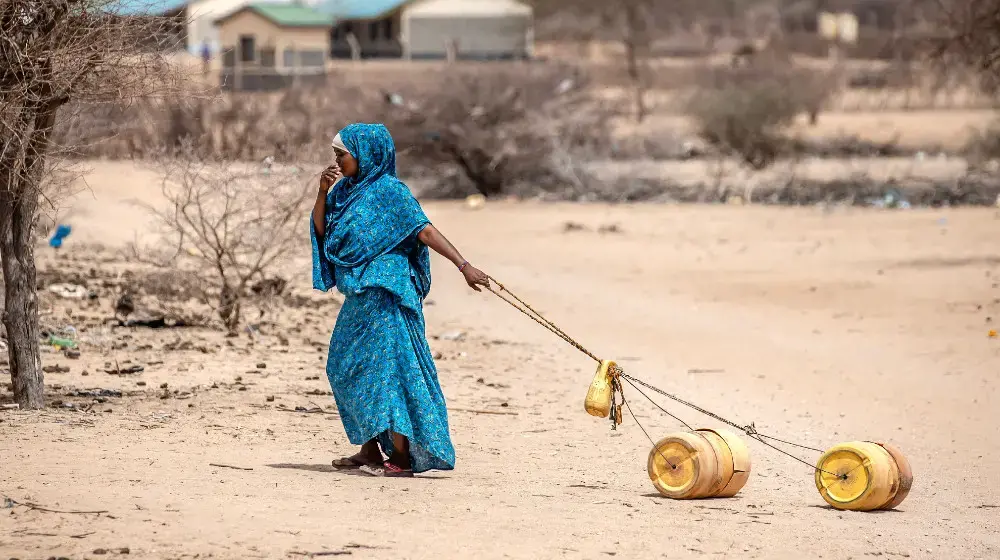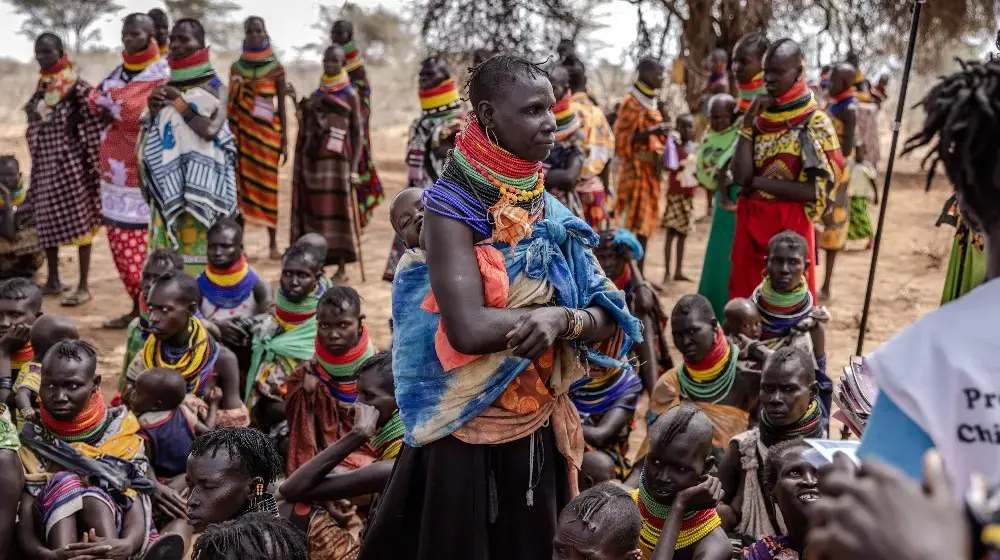“I have never experienced a drought as bad as this in my life,” says 28 year old Akure Ewar. At seven months pregnant, she complains that she is hungry and often feels dizzy when going about her day. “The dry seasons have been progressively getting worse over the last three years, but our animals kept us going with milk and meat. This time, they have all perished and left us with nothing,” she says.
Kenya is in the midst of the worst drought experienced in 40 years, following four successive failed rain seasons. More than 4.3 million people are in need of humanitarian assistance, among them 134,000 pregnant or lactating women who are reported to be acutely malnourished and in need of treatment. Forced to migrate in search of water, food, and pasture, many are left unable to access health facilities for life-saving maternal healthcare.
“Before the drought, our health facilities would record an average of 411 deliveries in a month, indicating a skilled birth attendance rate of 70%,” says Loima Sub-county public health officer Maiyo Elphas. “In November 2022, the number was down to 100 births recorded, which represents a very low rate of 24.6% ,” he says.
In Lochorepetet village, Losikiria Kuya, a 30-year-old mother of three says she sometimes has to go for days without food. She is currently pregnant with her fourth child, and is often unable to trek the 10 kilometers to the nearest health center for her ante-natal check-ups.
“Usually when it is time to deliver, my husband will take me to the center on a motorbike, but with him often gone in search of pasture, I have to be ready to fend for myself if need be,” she says. Lack of access to quality maternal healthcare can have serious consequences for expectant mothers like Losikiria, often resulting in complications and poor outcomes for both the mother and baby.
UNFPA is on the ground in the drought-affected counties and working with partners including the Kenya Red Cross, International Rescue Committee, and county health management teams to provide life-saving sexual and reproductive health services through integrated community health outreaches that bring services closer to those who need them most.
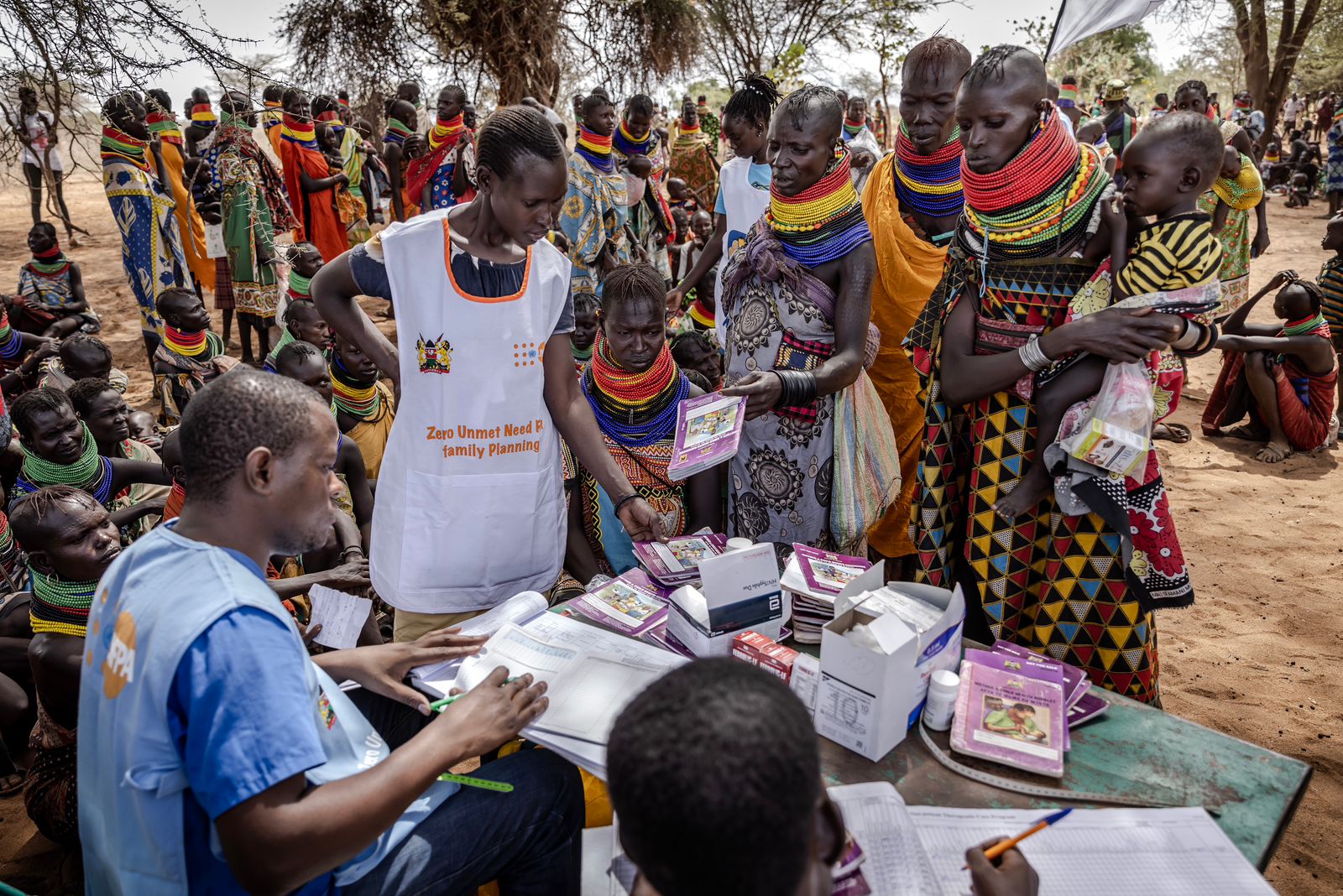
© UNFPA/Luis Tato.
“During the drought season, we have been carrying out health outreach activities every two weeks where we offer ante-natal and post-natal services, family planning, nutrition, and immunization services to the community,” says Lobei Health Center Nurse Dedan Njagi.
An estimated 15-20 pregnant women are attended to at each health outreach, allowing them to keep up with their ante-natal care and receive life-saving supplies and medicines during pregnancy. Community health volunteers who form part of the outreach teams are also tasked with keeping track of the women to ensure that they deliver at a health facility, and with the help of a skilled healthcare worker.
The severity and exceptional duration of the drought has worsened an already dire situation in Turkana County which has in the recent past battled multiple crises including locust infestations and the COVID-19 pandemic. Projections indicate the possibility of a sixth consecutive poor rainy season from March to May 2023, placing even more women and girls at further risk of losing access to life-saving reproductive health and protection services.
UNFPA continues to work with UN agencies and in partnership with the government of Kenya and local organizations to scale up the delivery of sexual and reproductive health and protection services across counties worst affected by the drought. The UN sexual and reproductive health agency is appealing for $113.7 million for its Response Plan for the Horn of Africa Drought Crisis 2022-2023 to respond to women’s and girls’ escalating needs.

